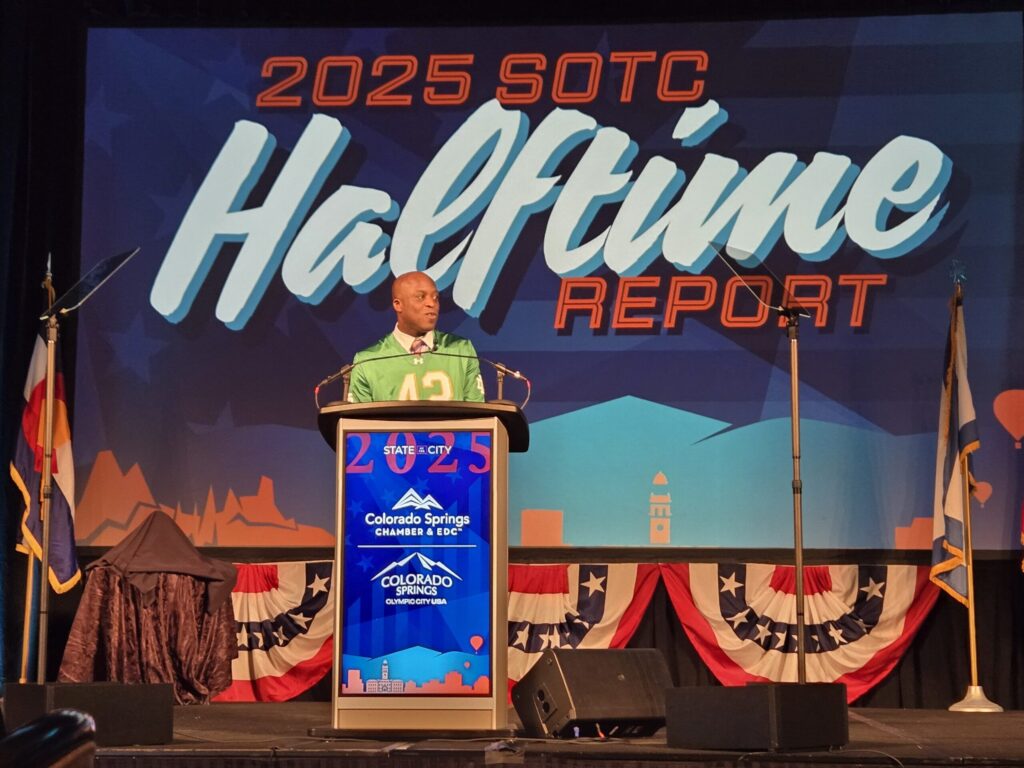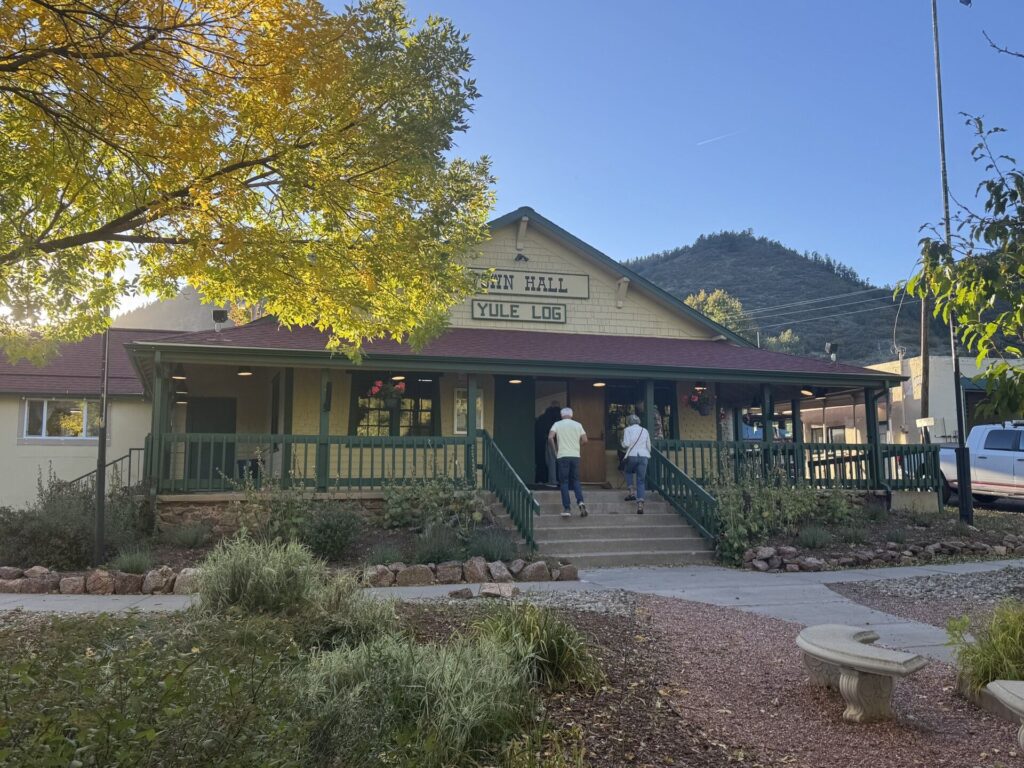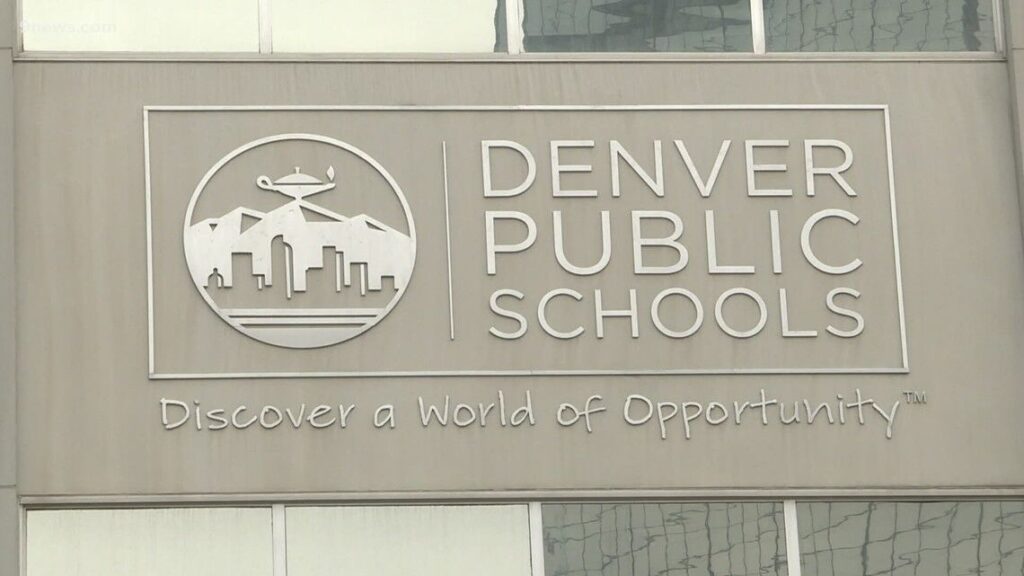Denver Public Schools lacks transparency and accountability, former communications director says
A lack of transparency and accountability has pervaded Denver Public Schools in the last three years — a culture that gets in the way of the district’s ability to safeguard its students and enhance the educational environment for children, the district’s former executive director of communications on Wednesday said.
In particular, Will Jones criticized Denver Public Schools (DPS) for adopting a policy governance form of executive limitations and confidentiality agreements, arguing such policies “are not in alignment with the values that once guided our work at DPS.”
Jones spoke at a press conference on Thursday to address transparency issues around Superintendent Alex Marrero’s use of non-disclosure agreements. On Monday during public comment, Jones disclosed the district’s practice of requiring certain employees to sign confidentiality agreements.
He urged DPS board members on Thursday to reconsider both executive limitations and the use of confidentiality agreements, which, he said, “hinder efforts toward transparency.”
Jones — who had been with the district for nine years under both former Superintendents Tom Boasberg and Susana Córdova — blamed the lack of information and transparency on the policy governance model adopted by the board of education.
He urged the board on Thursday to reconsider its use, saying the way governance is implemented has created a scenario in which information is only funneled to the board through Marrero.
Jones was laid off in February.
“Information is not being shared as readily as I think it should be and often as it has been in the past,” said Jones, the former executive director of communications.
‘I’m not a disgruntled former employee’
Since speaking out publicly, Jones said he has spoken with at least two board members, neither of whom was familiar with issues he believed was “common knowledge.”
These unnamed board members, Jones said, had a common refrain to what he was sharing: “I didn’t know that.”
For example, neither board member — Jones said — was aware of how the district’s security plan was created nor how much had been spent on the safety consultant contract with Murphy Robinson.
Robinson, president and CEO of Robinson Corporations Security Group, was hired last year to evaluate the district’s existing systems — including building infrastructure, policies, training and organizational culture — and to help develop the district’s safety program.
Steve Katsaros, co-founder of the Parents Safety Advocacy Group, or P-SAG, has been critical of the Murphy contract, saying it duplicates the work district staff does every year.
The contract was not to exceed $150,000.
Anything over $1 million requires board approval.
“I don’t know what the board doesn’t know,” Jones said.
Having rejected a $40,000 severance package that would have required him to sign a confidentiality agreement and release the district from any legal disputes, Jones said he is concerned the public discussion would focus on him, rather than the lack of information being fed to the board.
“I’m not a disgruntled former employee,” Jones said.
‘Obligations under privacy laws’
A confidentiality agreement, or non-disclosure agreement (NDA), is a legal contract designed to protect confidential or sensitive information.
NDAs are typically invoked in business to protect trade secrets and proprietary information, but public agencies are increasingly mandating employees to sign non-disclosure clauses.
District officials have defended the practice, saying it doesn’t prevent employees from speaking out under the Federal Whistleblower Protection Program and that the new policy is to safeguard student and employee information.
“Numerous employees, including those in student services, human resources, legal, communications, and IT, require access to confidential data and sign NDAs to remind them of their obligations under privacy laws,” Scott Pribble, a district spokesperson, said in statement.
Last year, the governor signed into law a measure that bars state and local government agencies — as well as school districts — from requiring current or prospective employees to sign a non-disclosure agreement as a condition of employment, with some exemptions.
The law allows for exceptions, such as preventing employees from revealing sensitive information, such as proprietary business dealings or security information. It also allows for an employee to request a non-disclosure agreement in order to protect their privacy — but not as a means for covering up any underlying misconduct or criminal behavior.
While it is unknown how novel or pervasive the practice, education experts believe the Denver Public Schools policy is an outlier.
Bryce Reedy, with the Colorado Association of School Boards, has said the use of confidentiality agreements is not widely practiced. And Will Trachman — general counsel for Mountain States Legal Foundation and former assistant secretary in the U.S. Department of Education’s Office for Civil Rights — called its use “novel.”
Early in its scheduled Thursday night meeting, the board of education passed a statement in support of its policy governance by a 7-0 vote.
“Policy Governance (PG) is a model of governance accepted by school districts across Colorado and nationwide,” the statement said, adding that “PG is the preferred method of governance endorsed by the Colorado Association of School Boards (CASB).”
The statement noted that the previous board had agreed to limit its information requests to reduce the administrative burden.
“If the Board ever believes it is not receiving the information it requires, the Board may revisit and change this policy at any time,” the approved statement said.
This article includes previous reporting by senior investigative reporter David Migoya.











